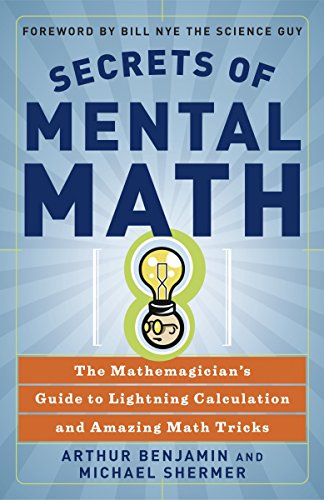The purpose of this article is to point out the procedural cobwebs within our mathematics classrooms, both within our institutions of higher learning and within our public schools.
It's always the same. Whenever and wherever math teachers gather, the conversation is of student deficiencies and who's to blame. Professors blame adjuncts, adjuncts blame high school teachers, who blame middle school teachers, who blame elementary school teachers, who blame parents and nearly everyone blames calculators. Why? Why are these supposed deficiencies of millennium-old mathematics of concern to anyone? Is there really a dearth of unsolved circumferences and areas? Is there really a shortage of algebraic equations that go unsolved?
 Government Schools Are...
Best Price: $3.96
Buy New $4.99
(as of 09:05 UTC - Details)
Government Schools Are...
Best Price: $3.96
Buy New $4.99
(as of 09:05 UTC - Details)
Certainly one could argue there is a labor shortage of individuals who are proficient in secondary mathematics (algebra, geometry, consumer math, statistics, etc.) but we can hardly argue there is a shortage of answers. From the comforts of my TI 89 calculator, I may input sets of data, acquire all needed measures of central tendency and standard deviations, run a regression analysis, formulate an equation, run various derivative and integrals, plot my data, upload it to my laptop and e-mail anyone I would like while drinking an overpriced white chocolate mocha from my local coffee shop. I could spend a few hours teaching any competent teenager to mimic my button inputs, and send them off with their final exam thus saving them a semester worth of work.
 Secrets of Mental Math...
Best Price: $2.13
Buy New $9.75
(as of 07:25 UTC - Details)
Secrets of Mental Math...
Best Price: $2.13
Buy New $9.75
(as of 07:25 UTC - Details)
Certainly this wouldn't be within my interests as a professor and most likely wouldn't be within the interests of the student, but we have to agree that a small investment in technology and training could provide all required solutions that are asked of them. In fact, these secondary mathematics problems are so easily solvable with technology, and said technology is so prolific, that we may safely say that there is no demand for these skills by hand – aside from the actual signal to employers they reveal by passing my coursework.
Yet, this simply begs the question, what is so special about the process of deriving solutions? Surely we would all be better spellers with the elimination of spell check and may possibly be better writers with the elimination of the backspace key and eraser, but exactly how would this benefit production and consumption?
Clearly we cannot churn out engineers and scientists by increasing the production of Texas Instrument calculators but then again, no engineering firm on the planet would trust their scientists or engineers without these calculating devices. A stubborn mathematician who refuses to employ calculating technology would be hard pressed to find work in the fast-paced world of consulting. Simply, he is a relic; delegated to the classroom to grade papers.
So why are we still educating math like we did in the pre-calculator revolution of the 1980's? I'm not sure I can provide a legitimate answer to this question, and there is still much to debate within this topic, but I think an extract from a favorite economist of mine (Steven Landsburg) about quality today versus quality of the recent past may offer some insight:
 Texas Instruments TI-8...
Best Price: $48.00
Buy New $90.00
(as of 04:50 UTC - Details)
Texas Instruments TI-8...
Best Price: $48.00
Buy New $90.00
(as of 04:50 UTC - Details)
"As far as quality of the goods we buy [today versus the past], try picking up an electronics catalogue from oh, say, 2001 and ask yourself whether there's anything there you'd consider owning…or, if you prefer, take a product like health care. Would you rather purchase today's health care at today's prices, or the health care of say, 1970 at 1970 prices?"
Nevertheless, as forward as I am on this topic, I would not dare call myself a professional mathematician, as it would be an injustice to the mathematicians I studied under as well as those I work alongside. Simply, I just imagine a society who embraces answers instead of worshiping processes.
For more traditional educational criticism and help/advice for educators see my Hands-on Math website or my book "Surviving the Trenches of Education: Unorthodox Advice from the Proudly Self-proclaimed Worst Teacher to Ever Enter the Classroom"
October 5, 2010




